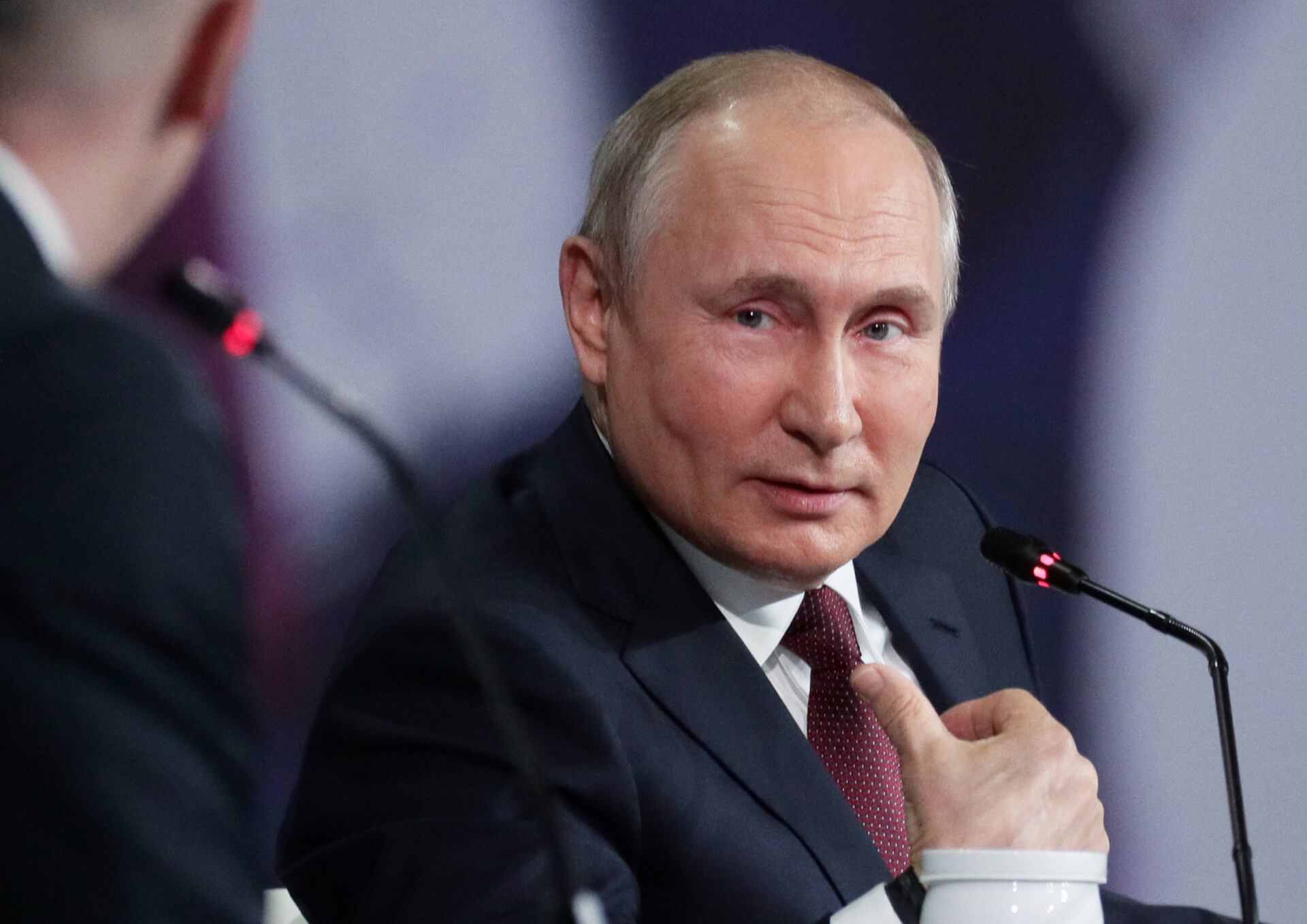On Sunday, Russian President Vladimir Putin ordered his top defence officials to ready its nuclear deterrence forces, citing “aggressive” remarks made by the North Atlantic Treaty Organization (NATO) and the West’s “illegitimate sanctions.” Russia’s escalatory move comes against the backdrop of Putin agreeing to hold peace talks with Ukraine as the war intensifies in cities across the country.
VIDEO: Putin orders nuclear forces on high alert.
— AFP News Agency (@AFP) February 28, 2022
Russian president orders his defence chiefs to put nuclear "deterrence forces" on high alert and accuses the West of taking "unfriendly" steps against his country. Russia has the world's second-largest arsenal of nuclear weapons pic.twitter.com/NjxNSJBJ3Y
Deputy Chairman of the Security Council Dmitry Medvedev slammed the West over its imposition of sanctions, accusing them of making the move “out of political impotence.” The former president urged Russia to abandon all diplomatic relations with Western countries, warning that Moscow could retaliate by nationalising assets belonging to individuals from the United States (US) and the European Union (EU).
In a meeting with officials from his top brass, Putin asked Minister of Defence Sergey Shoigu and Chief of the General Staff Valery Gerasimov to introduce a “special duty regime” to respond to the West’s hostile reaction to the ongoing military operations in Ukraine, particularly in the economic sphere. Russia’s strategic deterrence forces are comprised of offensive and defensive weapons, including nuclear-capable intercontinental missiles, long-range bombers, submarines, and missile warning systems.
Due to the rapidly escalating nature of the war, Russian state-owned news agency TASS reported that delegations from Russia and Ukraine are expected to meet for peace talks without preconditions on Monday in the Gomel region of Belarus, which borders Ukraine. Kremlin spokesman Dmitry Peskov affirmed Russia’s commitment to holding the talks, claiming that the venue, located near the Pripyat River, had been chosen by Ukraine. However, Peskov warned that Moscow will not follow a ceasefire and that its forces will continue to advance in Kyiv during the duration of the talks.
I know it’s from a couple of days ago but this is the most extraordinary speech from the Ukrainian leader @ZelenskyyUa pic.twitter.com/geszwXFAty
— Dan Walker (@mrdanwalker) February 26, 2022
Furthermore, during a call between Russian Minister of Foreign Affairs Sergey Lavrov and his Turkish counterpart Mevlüt Çavuşoğlu, Lavrov highlighted Moscow’s willingness to find a “sustainable solution” to the ongoing conflict in Ukraine. He made clear that Russia is ready to “cooperate” with all parties in the interest of peace and stability in the Donbas.
In parallel developments, on Sunday, Belarusian President Alexander Lukashenko, a long-time Putin ally, stripped Belarus of its non-nuclear status by approving a new constitution that could see Minsk house nuclear weapons for the first time since the dissolution of the Soviet Union. Lukashenko warned that if the West moves nuclear weapons to NATO members such as Poland or Lithuania, Belarus would ask Putin to send nuclear weapons.
Russian propaganda has gone off the rails and speculates Ukraine might be preparing to drop a ‘dirty bomb’ on the Russian territory. This is a sick fake. Ukraine doesn’t have nuclear weapons, doesn’t conduct any work to create/acquire them. We are a responsible member of the NPT.
— Dmytro Kuleba (@DmytroKuleba) February 26, 2022
In this context, Ukrainian President Volodymyr Zelensky called off the peace talks in Belarus despite indicating earlier that Ukraine would attend the talks. Zelensky raised concerns over Lukashenko’s neutrality since Russian troops had directly attacked Ukraine from Belarusian territory. Zelensky instead suggested holding talks in Warsaw, Bratislava, Istanbul, Budapest, or Baku, saying, “Any other city in a country from whose territory missiles do not fly would suit us.” Mykhailo Podolyak, an advisor to Zelensky, said the conditions set by Russia for talks in Belarus are part of Putin’s propaganda, emphasising that Ukraine wants “only real negotiations, no ultimatums.”
"The president is here." President Volodymyr Zelensky of Ukraine posted a video on social media showing him standing alongside other government officials, saying that the country’s leaders had not fled Kyiv as Russian forces entered the city. https://t.co/VPxc01QGAG pic.twitter.com/F91xlEp7we
— The New York Times (@nytimes) February 25, 2022
In a similar vein, Ukraine’s ambassador to the US, Oksana Markarova, said Ukraine has always “focused on the diplomatic solution,” adding that Zelensky had offered to conduct talks before Russia invaded Ukraine.
Nevertheless, despite Russia’s military onslaught intensifying, and reaching the capital Kyiv over the weekend, Zelensky refused foreign offers for his evacuation by saying, “The fight is here; I need ammunition, not a ride.”
In a related development, the US Treasury announced that it will impose sanctions individually targeting Putin and other high-ranking Russian officials such as Lavrov and Shoigu.
More protests against Putin's invasion of Ukraine erupted in Moscow this evening, after the Kremlin put out an ominous threat to anyone thinking of protesting.
— 🇺🇦 Ukrainian Glory Forever 🇺🇦 (@r_netsec) February 28, 2022
Mad respect to the courageous Russians willing to put their own safety on the line to defend the lives of Ukrainians. pic.twitter.com/jpU4qHLMPP

